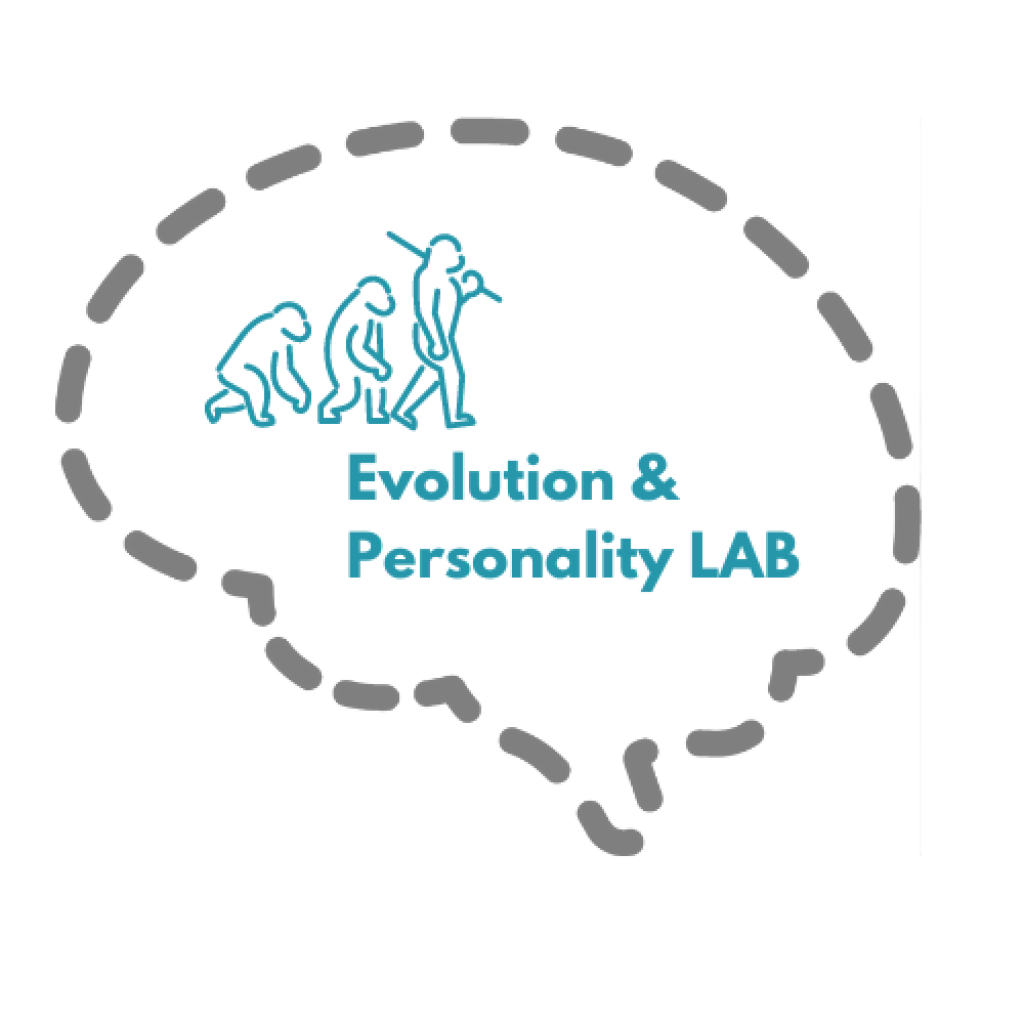Wellcome to the Evolution and Personality Lab. The Evolution and Personality Lab is a research laboratory that is dedicated to studying personality from the perspective of evolutionary psychopathology. It is led by Simone Cheli and includes different researchers and clinicians primarily working at Tages Charity and St. John’s University.
Current research focuses on developing models of conceptualization and treatment of personality pathology that are consistent with evolutionary theory and recent dimensional and hierarchical approaches to psychopathology. Specifically, we are interested in understanding how the basic organization of personality – as it emerges in the early years – can manifest maladaptive structures following a failure to adapt.
We regularily collaborate with other research centers and scholars. Below is information about the lab members and the main research in progress. Here’s the link to the Research Gate page of the Lab.
Members of the Lab
Student Members of the Lab
Chelsea Dawn Witten – St. John’s University (2023-2024)
Zuzanna Kromczyk – St. John’s University (2024- )
Current Research
For a complete review of the studies see the Publications or Projects section. Below are the main researches currently underway.
An evolutionarily informed model of personality pathology
- Simone Cheli (PI)
- Gil Goldzweig
- Emilia Soroko
- Joan M Soldevilla
- O Jiaqing
- Martin Brüne
The purpose of this study is to explore the reliability of a new evolutionarily-informed model for conceptualizing personality pathology. In doing so, three consecutive studies will be conducted with the secondary objectives of exploring the model’s inter-rater reliability, client and therapist acceptability, and cross-cultural reliability. In the first study, two Italian therapists will apply the conceptualization model on 14 international patients and two different supervisors will evaluate the inter-rater reliability and acceptability in using the model on the same patients.
In the second study, the same patients (n=14) will be interviewed to evaluate the acceptability of the model. In the third study, psychology students (n=110) from 5 countries (China, Italy, Poland, Spain, United States) will apply the model on transcripts of the first two sessions and on assessment reports and two supervisors will evaluate the inter-rater reliability and acceptability in using the model on the same patients.
Evolutionary Systems Therapy for Personality Pathology
- Simone Cheli (PI)
- Gil Goldzweig
- Sara Bui
- Martin Brüne
- Veronica Cavalletti
The objective of this study was to evaluate the feasibility and rationale of a six-month Evolutionary Systems Therapy for personality pathology. In doing so, we employed a conceptualization that is supposed to be consistent with dimensional models of personality disorders and evolutionary psychopathology. Twenty-one patients were recruited and stratified into three homogeneous subgroups in accordance with spectra of psychopathology (internalizing, externalizing, schizotypy). An evolutionarily informed conceptualization was shared with patients based on three interpersonal styles that we consider to be prominent in the three spectra. Feasibility indicators were evaluated monthly, while changes in clinical measures were assessed by three procedures: ecological momentary assessment, monthly self-report measures, pre-post self-reports and interviews.
Eighteen out of 21 patients remitted from diagnosis, all indicators suggested a high feasibility. Individually, all patients showed reliable changes in measures of symptomatology and personality pathology. A repeated-measures ANOVA reported large effect sizes (η2 ranging between .892 to .979) for the whole sample. Ecological momentary assessment suggests that the three interpersonal styles are prominent in the corresponding spectra both before and after the treatment. This study supports the need for a confirmatory randomized controlled trial on the clinical utility of Evolutionary Systems Therapy. Despite the limited sample size, the findings are consistent with the importance of a dimensional approach to psychopathology and of an evolutionarily informed conceptualization of personality disorders.
Here a presentation about the project and the treatment manual.
A Brief Measure of Primary Affects
- Simone Cheli (PI)
- Marta Floridi
- Joan M Soldevilla
- O Jiaqing
- Gil Goldzweig
The aim of this study is to develop a short measure to assess the relevance of the 7 primary affects identified by Jaak Panskepp. Panksepp carved out seven biologically inherited primary affective systems called SEEKING (expectancy), FEAR (anxiety), RAGE (anger), LUST (sexual excitement), CARE (nurturance), PANIC/GRIEF (sadness), and PLAY (social joy). To date, there is only one long measure that is characterized by the absence of the affect related to sexual arousal (replaced by a spiritual connection factor) and by the presentation of the items as related to stable traits in the person’s life. Our aim is instead to use the 7 original affects and investigate both the recurrence of these affects in a stable manner but also their relevance in the here-and-now of people.
We have therefore developed 3 studies. In the first study we preliminarily tested a short questionnaire on a sample of non-clinical subjects. Here we confirmed the reliability and the factorial structure of the questionnaire. Subsequently we are confirming the reliability and validity in two different studies and samples. In the second study we are investigating the usefulness of the questionnaire in a sample of clinical subjects exploring the concurrent and predictive validity with various psychopathological measures. In the second study we are investigating in non-clinical subjects the transcultural validity in 4 samples: Italian, Spanish, Chinese, American sample. At the end of the research we expect to have a useful tool to support an evolutionarily informed conceptualization of psychopathology.






